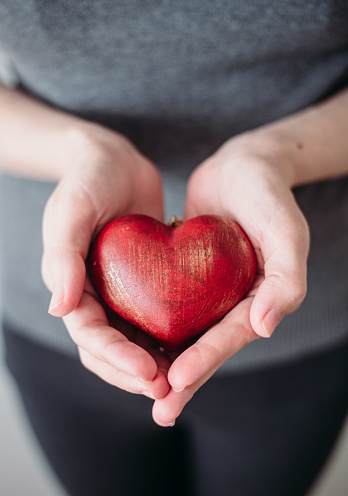Learning you or a loved one has cancer changes everything. You begin paying attention to things you normally take for granted, start holding family members a bit tighter and longer, and begin researching treatment options.
During all this, you may not think about you or your loved one’s heart. Cancer treatment can increase the risk for heart disease both during and after treatment. Fortunately for residents of South Georgia and North Florida, Archbold offers cardiooncology to address the heart health needs of patients who have or have had cancer.
“The strong connection between cancer and heart disease has driven a need for these services,” says Kashyap Choksi, MD, PhD, cardio-oncologist and director of the Archbold cardio-oncology program. “It’s exciting to provide cardio-oncology to our community, so patients don’t have to travel far for advanced care.”
THE NEED FOR CARDIO-ONCOLOGY If you have never heard of cardio-oncology, you are not alone. It is a young field that is only starting to have an impact. In fact, Dr. Choksi is one of only a few certified cardio-oncologists in the world.
Cancer treatment has one goal: find and destroy cancerous cells. Unfortunately, this therapy doesn’t always only attack cancerous cells. Sometimes it damages healthy tissue.
The purpose of cardio-oncology is to identify when cancer treatment damages the heart muscle. Known as cardiotoxicity, this heart damage happens with both conventional chemotherapy or radiation therapy as well as newer treatments, such as immunotherapy and targeted therapy. These cancer treatments can lead to blocked blood vessels, irregular heart rhythms or weakened heart muscle.
A SERVICE FOR ALL Cardiotoxicity can occur in anyone receiving cancer treatment. Certain factors, however, increase the likelihood of damage. Those factors include:
» Being older than 65
» Diabetes » Ethnicity (Being African American puts you at higher risk.)
» Heart disease
» Heart failure
» High blood pressure
Although heart damage can occur during treatment, people who have completed cancer treatment need to continue protecting their hearts—something that is even more important as treatments improve and cancer survival rates increase.
Among cancer survivors, heart disease is a major threat. It’s the second most common cause of death for survivors, and according to the American Heart Association, older women who have had breast cancer are more at risk of dying from heart disease than a recurrence of breast cancer.
Cardio-oncologists hope to change their outlook by preventing heart disease when possible and diagnosing it early when necessary.
Following successful cancer treatments, cardio-oncologists stay in touch with patients. At regular appointments, they monitor cardiac function, discuss new or worsened symptoms, and run necessary tests. This allows cardiooncologists to detect heart disease as early as possible and begin treatment to potentially minimize lasting damage.
WHAT TO EXPECT Dr. Choksi works with Archbold’s medical oncologists and cardiologists to ensure patients with cancer receive the treatment they need and experience as few cardiacrelated side effects as possible. If treatments appear to have a detrimental affect, he consults with the team to find a more appropriate treatment to protect the heart from further damage.
“The goal of any cancer treatment is to eliminate the disease, but I’m able to help oncologists find alternative treatments that don’t cause additional problems. We want to prevent cardiac complications while also avoiding interruptions in life-saving cancer therapy that can occur,” Dr. Choksi said. “We do this by interpreting the objective data for oncologists. This multidisciplinary approach allows us to offer the best possible care.”
This ongoing collaboration extends to other providers. One goal of cardio-oncology is to manage pre-existing conditions that can contribute to heart problems so those conditions don’t further complicate treatment or its side effects.
“Cardio-oncology combines two vital aspects of cancer care,” Dr. Choksi said. “It ensures the whole team and I are doing all we can to help patients move past cancer and get back to their lives.”
Dr. Choksi is also launching a cardio-oncology survival clinic to provide patients with guidance and care following their treatments with.
